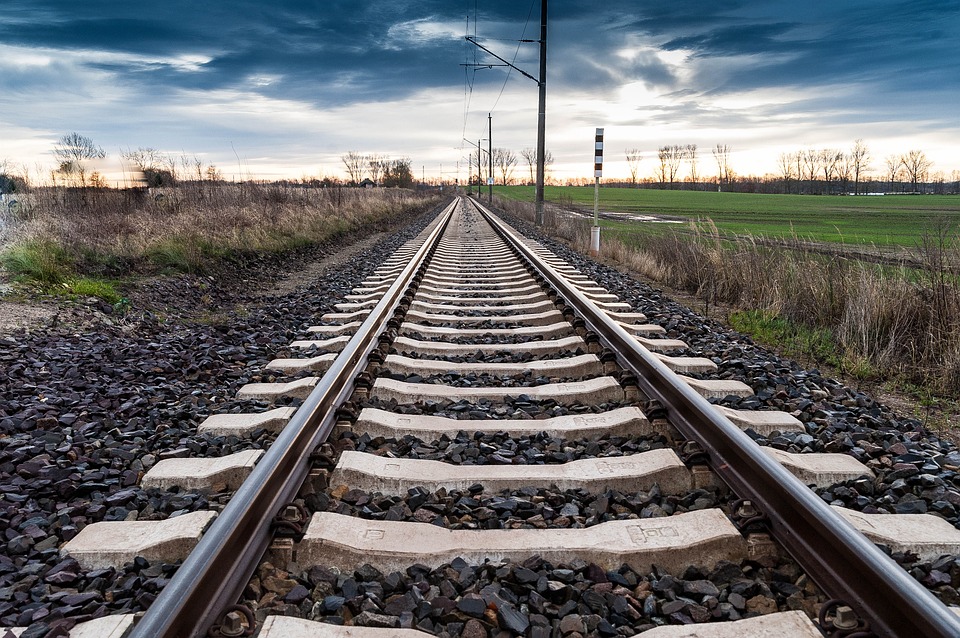All the railway wars between Turkey, Asia and Europe

The Walking Debt in-depth study on the role of railways in emerging globalization
To many it will certainly seem retro to talk about railways in the 21st century. And yet, even in the time of the extraordinary flowering of submarine cables and 5G antennas, the old railways that revolutionized the economies and societies of the nineteenth century remain one of the tools through which the internationalization that began more than 150 years ago proceeds, and of course not by chance.
The railways, in fact, under certain conditions, represent a much faster and more efficient means of transport than maritime shipments. One of these conditions is the existence of a transnational rail network that is homogeneous, not only from a technical point of view, but also from an exquisitely bureaucratic one. In the sense that the passage between the various borders is made easy and not hindered by friction between governments.
The occurrence of these conditions presupposes that the governments of the countries crossed by these railway lines want to share these transport networks. And therefore that there is some common vision at least as regards the methods of supply to be pursued in order to guarantee economic growth.
Read from this particular angle, the numerous chronicles that arrive from the imposing mass of Eurasia – that vast world that passes through Turkey, arrives in Russia and arrives in China – tell us that what we have called emerging globalization has found in the old railways one of the main tools to share an internationalization project which, in some way, offers itself as an alternative to the one we are used to knowing and which is based on shipments of goods by sea.
Obviously we must not exaggerate. Maritime traffic still accounts for over 90% of international trade. But following the chronicles of the railway international, let's call it that, serves to understand that we should not take the world we know for granted. For the simple reason that profound forces operate which, in the long run, can lead us to equally profound changes. Until then we can only observe what happens and try to sketch out some conjectures.
Among the most recent news that testifies to the railway activism of the states that revolve around emerging globalization, it is worth mentioning just a few. The first, which dates back to a few days ago, is the meeting held in Baku between the Iranian foreign minister and the Azerbaijani authorities, which was preceded a few days by another meeting, also in Baku, between the Iranian ambassador to Baku and the director of the Azerbaijani railways. On the table, in addition to the usual International North-South Transport Corridor, is the development of an old railway project that connects Turkey-Iran and Pakistan.
The Azerbaijani railway activism is not surprising. For some time the country has been committed to promoting its campaign to propose itself as a regional hub for all what the Chinese call silk roads, – it is useful to remember that this year the "launch" of the first container train between Azerbaijan is expected. and China – playing as a team with another player, with whom he shares ethnicity and religion: Turkey.
In fact, Turkey shows considerable railway activism. Just recently, the country sent two trains loaded with goods: one to Russia and the other to China, thus drawing that perfect triangle of interests between the three countries that we have already identified elsewhere. For its expeditions Turkey used the Baku-Tbilisi-Kars (BTK).
An infrastructure that in Turkish – but not only Turkish – designs is central in what is defined as the Iron silk road that connects China to Europe, an ambitious network of railway connections that suggests how concrete this game is.
The first two shipments of Turkish goods to Russia and China is the concrete signal that this globalization on iron has begun its epic.
No less important for our brief excursus on the railway globalization of Eurasia was the announcement by the Kazakh Prime Minister on January 26 last of the project for the construction of a high-speed railway that connects the Central Asian state with Uzbekistan. The “Turkestan – Shymkent – Tashkent” line should serve to promote not only regional tourism, but also a common idea of economic development based precisely on common interests.
The intent is the same that animates the discussions between Uzbekistan and Pakistan, which are also committed to the idea of building a railway line that connects them through Afghanistan. And if we remember how strategic Pakistan and Uzbekistan are in the Chinese vision of the upcoming globalization, we understand where our iron international starts.
No one can say today where it will lead us. On the other hand, not even the railway pioneers of two centuries ago had any idea.
This is a machine translation from Italian language of a post published on Start Magazine at the URL https://www.startmag.it/mondo/ferrovie-globalizzazione/ on Sat, 13 Feb 2021 16:00:52 +0000.
